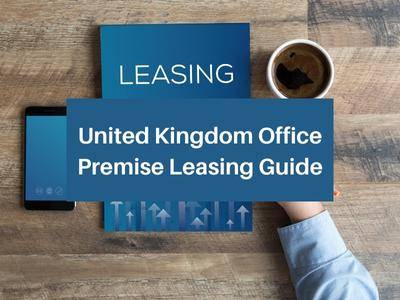United Kingdom Office Premise Leasing Guide
 A quick glance at commercial rental considerations with 3E Accounting’s United Kingdom office premise leasing guide.
A quick glance at commercial rental considerations with 3E Accounting’s United Kingdom office premise leasing guide.
Most businesses in the United Kingdom opt to rent office premises rather than going for an outright purchase. Property prices are sky-high, especially in business districts, and renting offers a much more viable alternative. In this United Kingdom office premise leasing guide, 3E Accounting looks at some of the matters to consider before signing on the dotted line.
A Place of Business
Getting the best rental deals depends mostly on location and office size. Leased office premises in the popular business districts will undoubtedly cost more. A posh, hi-tech corporate office is usually accompanied by a hefty price tag. Consider whether your business needs the retail property, a bespoke executive office, industrial base, etc. Listing down the type of facilities you need is also essential. Facilities can include meeting rooms, canteens, etc.
Rentals in the United Kingdom form a legally binding contract, between the landlord and tenant, or a tenant and subtenant. A reliable agency such as 3E Accounting will ensure that your contractual terms are fair and accurate. For example, the rental can increase yearly and having a stipulation for ‘market rent’ is a good safety measure.
It is also advisable to take a look at the Code for Leasing Business Premises 2020. This informative guide is published by the Royal Institute of Chartered Surveyors (RICS) and provides a framework on rental operations.
In general, rental contracts can be either:
- A Lease or a Sub-lease: usually for a longer rental duration (e.g., between five to ten years), It requires legal consideration and can take up to a few months to execute.
- A License: a short-term leasing arrangement and quickly drafted (sometimes within a day). It does not really require legal advice as it tends to use standard contracts.
Two main types of offices are popularly rented in the United Kingdom:
- Serviced Office Space: the go-to for start-ups as it comes entirely kitted-out with everything from high-speed broadband to break-away rooms, hot desks and pantry. It offers flexibility in terms of rental duration, space, type of services, etc. Ideal for co-working as the office space is shared. Set up costs are also lower and can be rented within a day.
- Leased Office Space: this option is more costly as the tenant must furnish and set up the entire premise, including Wi-Fi, etc. However, it is ideal for businesses looking for long-term rental options as it is more cost-efficient in the long run. There is no need to share office space either. It allows the company to customise the premise according to its corporate outlook.
Tenants may be required to place a deposit if they fail the Profits Test. This test requires the business’ net profits to be equivalent to three times the past three consecutive years’ annual rent.
If you are not getting a license or leased office space, then you will need to pay for an Energy Performance Certificate (EPC). This is a legal requirement in the United Kingdom for all commercial leases. Aside from the rent, your leased office premises may also incur all or some of the following charges:
- Utility and bills.
- Stamp duty, agency and legal fees and service charges including building insurance.
- Value-added tax (VAT) if the building is VAT-elected.
- Council or local authority tax for commercial property such as waste collection, etc.
3E Accounting provides customisable and innovative business solutions for the discerning entrepreneur. Our United Kingdom office premise leasing guide is collated by our team of experts who have decades of experience. We offer tailor-made options, including sourcing for the most competitive leases. We’ll help you negotiate the deals you want as well as provide legal advice as needed. Contact 3E Accounting today for an insightful consultation on all your business needs.

